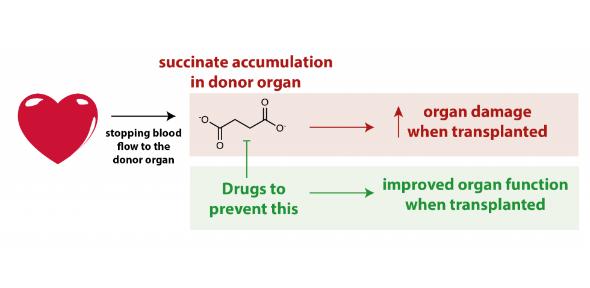
Submitted by Penny Peck on Thu, 26/09/2019 - 00:00
An interdisciplinary study led by Mike Murphy of the MBU and the Department of Medicine, and Kourosh Saeb-Parsy of the Department of Surgery has just been published in Nature Metabolism. In collaboration with colleagues in the MRC Cancer Unit and the University of Glasgow, they were interested in finding out why organs for transplantation can only be stored for a short period of time if they are to be transplanted successfully. They discovered that during the brief periods when organs warm up in the absence of blood flow as they are removed from the donor or are connected into the recipient a metabolite called succinate builds up. Then, when the organ’s blood supply is restored oxidation of the succinate leads to tissue damage. Importantly, preventing this metabolism of succinate with a new type of drug prevents this damage and may help improve the outcome for transplant patients and increase the number of organs that we transplant in the future.
This work has led to a new understanding of how organs for transplantation can be damaged at various stages of the processes involved, but also suggests how changes in practice and the use of new drugs may improve the function and lifetime of transplanted organs.
Another potential benefit is that this work may help expand the numbers of organs available for transplantation by enabling organs currently thought unlikely to function well to be used rather than being discarded.

